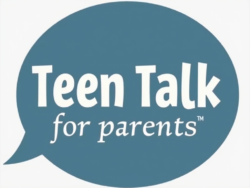
Children and Untruths
Lying is a behavior most parents encounter at some point during their child-rearing journey. Children may fabricate stories, deceive to conceal mistakes, or bend the truth to get what they want. While this behavior can be unsettling for parents, it is often a normal part of child development. However, it’s essential to understand the nuances of when lying is harmless and when it signals a deeper concern. This article outlines everything you need to know about dishonesty in children, offering insights on when to worry and practical strategies to manage the situation.
Why Do Children Lie?
Children lie for various reasons, and these motives often differ based on their age, environment, and developmental stage. By understanding the underlying causes, parents can address these behaviors more effectively.
1. Innocent Experimentation
Young children, especially those under five, often struggle to distinguish between reality and imagination. Their lies may not be deliberate but rather an extension of their creativity. For example, a three-year-old might claim they can fly like a superhero. Such untruths are usually harmless and indicate developing cognitive skills rather than deceptive intent.
2. To Avoid Consequences
One of the most common reasons children lie is to avoid punishment. Fear of reprimand can drive kids to tell untruths to protect themselves. For example, a child who knocks over a glass of milk might claim, “It wasn’t me!” to evade blame.
3. To Gain Something They Want
Children may lie to obtain something they desire, such as a treat or privilege. For instance, a child might say they have completed their homework even if they haven’t, hoping to secure screen time.
4. Peer Influence
As children grow older, societal and peer influences play a significant role. They might lie to fit in, impress friends, or avoid social embarrassment. These lies are often a part of their attempts to navigate complex social landscapes.
When Should Parents Worry About Lying in Children?
While lying is often a normal part of growing up, certain red flags should prompt concern. Recognizing when dishonesty exceeds developmental norms can help parents take timely action.
1. Habitual or Compulsive Lying
If lying becomes a persistent pattern that doesn’t seem situational or age-appropriate, it could indicate underlying issues. Habitual lying in children might be a coping mechanism for stress, insecurity, or unmet emotional needs.
2. Lying Paired with Other Concerning Behaviors
When lying is accompanied by aggressive tendencies, withdrawal, or a lack of empathy, it warrants closer attention. These behaviors might indicate psychological concerns, such as anxiety, depression, or conduct disorders.
3. Difficulty Distinguishing Reality from Lies
While younger children often engage in imaginative storytelling, older children (8+) should have a clear grasp of reality. If they consistently lie without understanding the consequences of their actions, further evaluation may be necessary.
4. Lying That Harms Others
Dishonesty that causes harm to peers, family members, or themselves is a sign of concern. For instance, a child spreading false rumors at school to hurt someone’s reputation requires intervention.
How to Cope with a Child’s Lying: Effective Strategies
Managing dishonesty in children involves a mix of patience, communication, and consistent discipline. Here are some actionable strategies for parents to handle the situation effectively.
1. Foster Open Communication
Building a strong parent-child relationship is crucial for minimizing dishonesty. Create a safe space where your child feels comfortable expressing themselves. Let them know they can admit to mistakes without fear of harsh judgment. For example, instead of reacting angrily when your child lies, ask, “Why did you feel you couldn’t tell me the truth?”
2. Demonstrate and Encourage Honesty
Children often model their behavior based on parental actions. Set an example by being truthful and admitting your mistakes. Praise your child when they choose honesty, reinforcing positive behavior. Acknowledging their courage to tell the truth can help build their moral compass.
3. Address the Underlying Cause
Understanding why your child lied is key to resolving the issue. If they lied to avoid punishment, consider how you can make your disciplinary approach less fear-driven. If they are lying due to peer pressure, help them develop better coping mechanisms for social situations.
4. Teach Consequences
Help your child understand the natural consequences of lying. For example, explain how dishonesty can break trust and complicate relationships. Role-playing scenarios or reading stories about honesty can also be useful tools.
5. Seek Professional Guidance When Needed
If you notice patterns of compulsive lying or associated behavioral problems, consulting a child psychologist or counselor can provide valuable insights. Early intervention ensures your child receives the necessary support to address underlying issues.
Key Takeaways
- Lying is a common part of child development, especially in younger kids.
- Recognize the difference between harmless untruths and signs of deeper concern.
- Foster open communication and model honest behavior to encourage truthfulness.
- Identify the root cause of dishonesty and address it through empathy and guidance.
- Seek professional help if lying becomes habitual or paired with other worrying behaviors.
Frequently Asked Questions (FAQs)
1. Is it normal for a four-year-old to lie frequently?
Yes, lying in preschoolers is often part of normal cognitive and social development. At this stage, children may struggle to differentiate between reality and fantasy.
2. How should I discipline my child for lying?
Focus on understanding the cause of the lie rather than harshly punishing the behavior. Encourage honesty, explain the importance of truth, and set fair consequences if necessary.
3. When should I be concerned about my child’s lying?
Be concerned if lying becomes chronic, affects relationships, or is accompanied by other troubling behaviors such as aggression or withdrawal. Consulting a professional in such cases is advisable.




